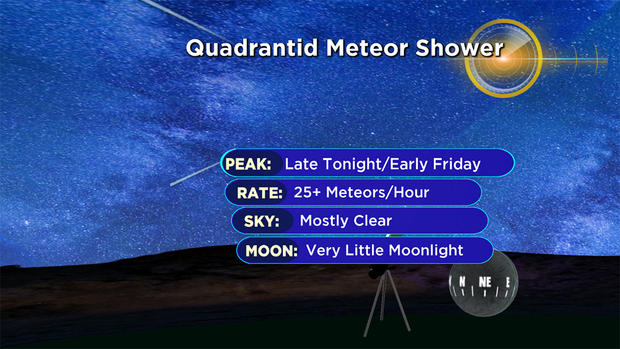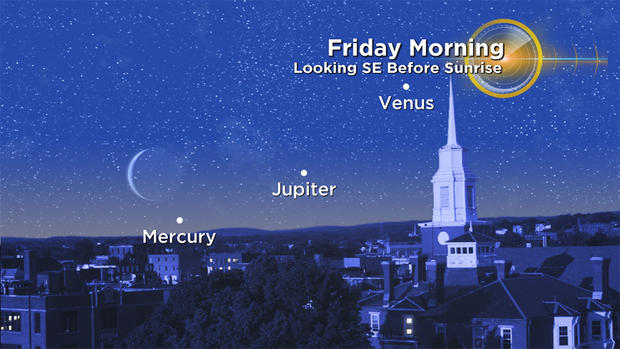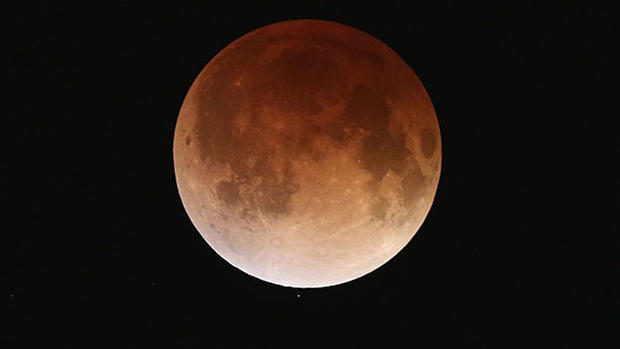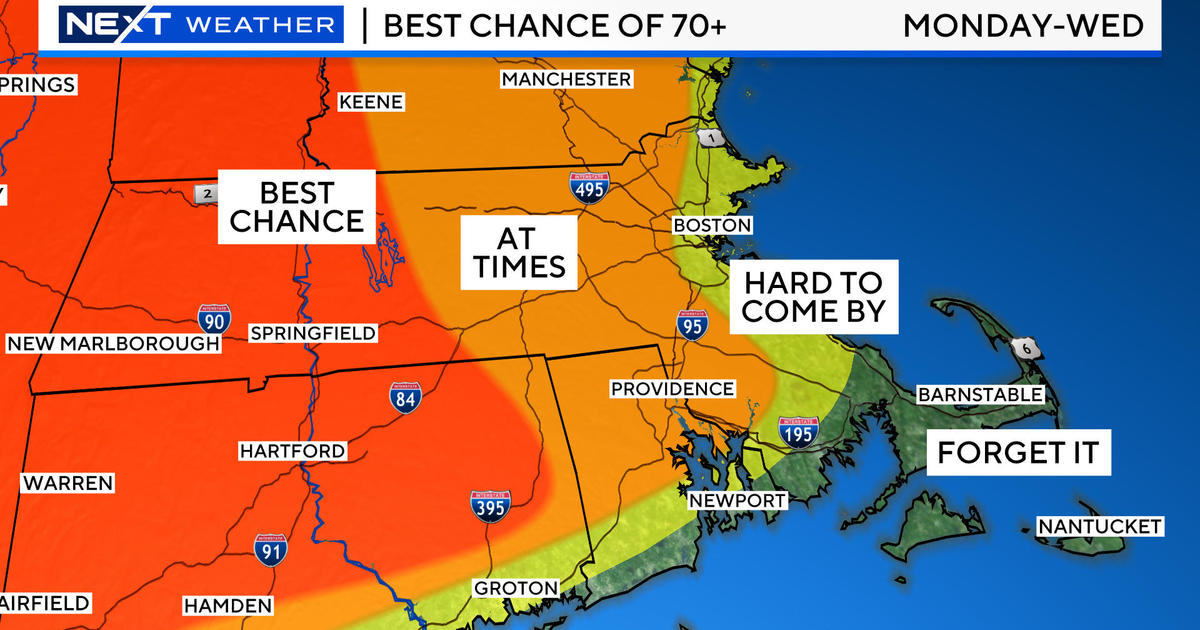Quadrantid Meteor Shower, Total Lunar Eclipse Coming To The Night Sky
BOSTON (CBS) -- While the weather is quiet, it is a great time to look skyward and see some cool things going on in our solar system! Not one, not two, but three astronomical events coming up, including a meteor shower, a great planetary view and a lunar eclipse!
First things first. . .
Quadrantid Meteor Shower
WHEN: Late Tonight!
WHERE: The meteors radiate out of the northeast sky, not too far from the Little and Big Dipper. . . but essentially all you gotta do is lie back and look up to get a view.
DETAILS: Not a very popular or widely known meteor shower (mainly because it arrives in the middle of winter and the duration is very short, only about a six-hour window). However, if you catch it just right, the "Quads" can produce a nice little show! 100 Quads per hour have been recorded in years past, however, the shower is more likely to produce about 25 per hour in any given year. Unfortunately the peak is set to arrive around 9:30 p.m. Eastern Time, great for Asia and Europe, but not so good for us. It looks like you will have two "windows" of opportunity. . . first this evening, and then again an hour or two before dawn.
FORECAST: Mainly clear, cold, upper 20s and low 30s (could be worse!) Also with just a sliver of a crescent moon rising just before dawn, very little moonlight to wash out the meteors.
RATING: 4 Stars **** (5 stars = must see, 1 star = skip it)
Planetary Lineup
WHEN: Friday just before dawn.
WHERE: Looking in the southeastern sky, best to have a wide open view of horizon.
DETAILS: A cool sight with the very thin crescent moon sitting just above the planet Mercury. . . just to the upper right of that you will find the planet Jupiter…and a little farther up and to the right, Venus!
FORECAST: Mainly clear, cold, upper 20s and low 30s
RATING: 3 Stars ***
Total Lunar Eclipse
WHEN: January 20-21.
WHERE: Visible in all of North America!
DETAILS: This will be a total lunar eclipse, meaning the moon will enter and be completely enveloped by the Earth's shadow. You will start to notice a slight darkening of the moon (known as the penumbral eclipse) at 10:34 pm on Jan. 20. . . the total eclipse will arrive at 11:41 p.m. on Jan. 21. The moon will be in "total eclipse" for more than an hour, ending at 12:43 a.m. During the full eclipse, the moon will have a reddish tint due to the refraction of light around the Earth. If you were on the moon looking back at the Earth, you would witness a total solar eclipse! And, you should know, this will be the last total lunar eclipse until May 26, 2021.
FORECAST: Ha, we aren't THAT good.
RATING: 5 Stars ***
Follow Terry on Twitter @TerryWBZ






